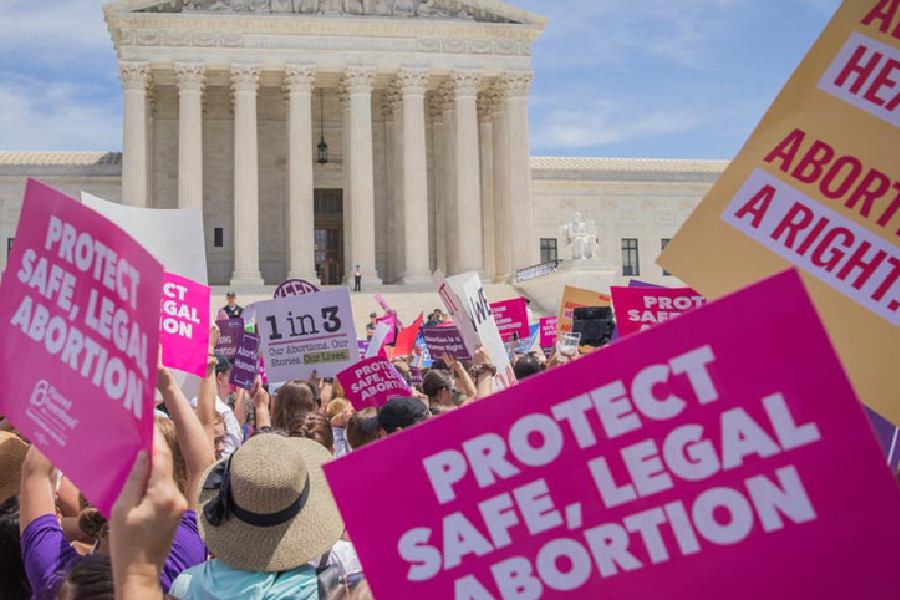Mexico’s Supreme Court decriminalised abortion nationwide on Wednesday in a sweeping decision that builds on an earlier ruling giving officials the authority to allow the procedure on a state-by-state basis.
The court struck down the federal penal code that criminalised abortion, deeming it “unconstitutional” and making abortion legally accessible in all federal health institutions across the country.
The ruling in Mexico, a predominantly Catholic country of 130 million people, points to how nations in Latin America are taking a leading role in broadening abortion rights.
“I’m very moved and very proud,” said Rebeca Ramos, executive director of GIRE, a leading abortion rights group that filed an injunction last year against the Mexican regulation from 1931 that criminalised the procedure. “This makes possible what we had not achieved in many years, which is that at least in certain institutions all across the country, legal and safe abortion services can be provided.”
The Mexican Supreme Court first ruled that criminalising abortion was unconstitutional in 2021, but that ruling only applied to the state of Coahuila, which borders Texas. Other Mexican states have already eliminated criminal penalties for the procedure, with Aguascalientes becoming the 12th Mexican state to do so last week.
Wednesday’s ruling has no impact on local laws, and abortion remains illegal in 20 of the country’s 32 states. But even in those states, women can now legally seek an abortion in federal hospitals and clinics. The ruling also prohibits employees at these facilities from being penalised for carrying out abortions.
“Hopefully, this is the preamble so that the court can go state by state helping local legislatures eliminate the crime of abortion since legislators do not do their job,” said Verónica Cruz, founder of the feminist group Las Libres in Guanajuato, Mexico.
In addition to Mexico, countries such as Colombia, Argentina, Uruguay and Guyana have moved to either legalise or decriminalise abortion.
The regional trend stands in contrast to the US, where the Supreme Court’s overturning of Roe v. Wade in 2022 placed the country among a small group of nations making it harder for women to end their pregnancies.
Mexico’s Supreme Court, in a brief statement announcing the ruling, said that
penalising abortion was
“unconstitutional” and “violates the human rights of women”.
The court’s ruling reflects profound changes in Mexican society and some of its institutions.
Much of Mexico remains culturally conservative, but decades of feminist activism have reshaped how many people in the country think about women’s rights.
Reproductive rights groups have also fought to have abortion cases heard by the Supreme Court.
New York Times News Service










